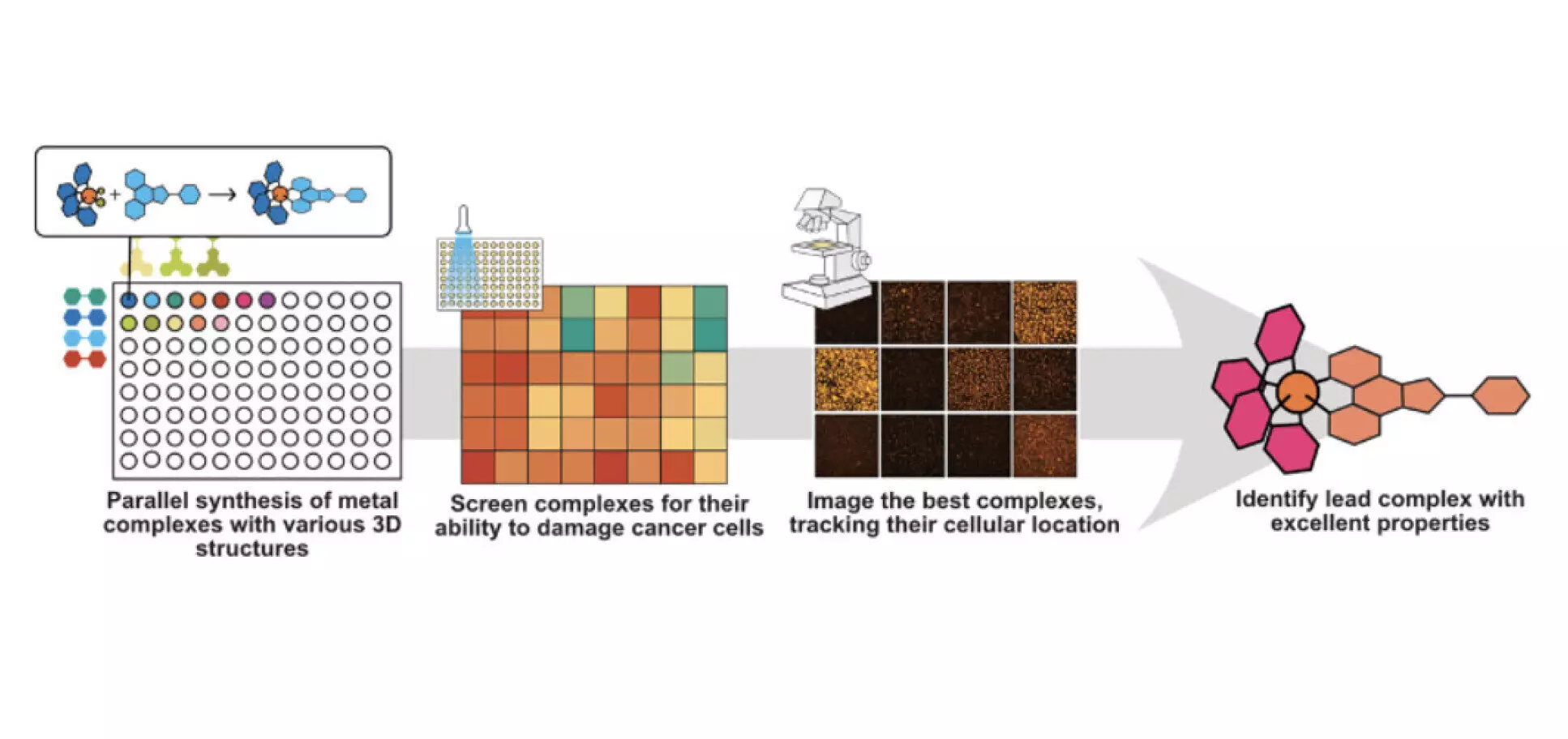Researchers at Imperial College London have made groundbreaking advancements in the field of cancer treatment by developing a platform for the synthesis, analysis, and testing of new compounds that show promise in fighting cancer. The findings of their study have been published in the prestigious journal, Angewandte Chemie International Edition. This new platform focuses on the development of metal-based compounds that become toxic to cancer cells upon exposure to light, a technique known as photodynamic therapy (PDT).
Creating new compounds with pharmacological properties is a costly and time-consuming process. There is a growing interest in developing workflows that enable the rapid synthesis and testing of multiple compounds simultaneously. Dr. Tim Kench and Professor Ramon Vilar from the Department of Chemistry at Imperial College London have devised a workflow that streamlines the synthesis of metal-based compounds with potential applications in cancer treatment. By attaching different molecular fragments to a central iridium core, they were able to manipulate the structure and properties of the compounds effectively.
Metal-based compounds have garnered attention for their diverse range of properties that can be beneficial in drug development. The researchers specifically focused on iridium complexes due to their unique properties that make them well-suited for photodynamic therapy. Unlike traditional chemotherapy drugs, the light activation of iridium complexes allows for precise targeting of cancer cells, potentially reducing side effects associated with treatment.
The new approach developed by the researchers utilizes ‘combinatorial synthesis’ to attach different simple molecules to an iridium center. This method allows for the assembly of compounds in 3D space, similar to building blocks of Lego. The compounds can be generated without any side products, enabling them to be tested quickly using automated chemical and biological assays without the need for time-consuming purification processes. This innovative approach has the potential to revolutionize the field of compound synthesis for cancer treatment.
Using their platform, the researchers were able to synthesize and test a library of 72 complexes simultaneously, assessing factors such as the generation of reactive oxygen species, tolerability in the dark, and efficiency in killing cancer cells under light exposure. Based on the results of these tests, they were able to design a second-generation library of 18 compounds that showed even better anticancer properties. The use of liquid handling robots in the synthesis and testing process enabled the researchers to shorten the entire cycle to just three days, compared to several weeks using conventional methods.
To further analyze the data and understand why some complexes performed better than others, the researchers collaborated with a team at the Massachusetts Institute of Technology specializing in computational analysis and machine learning applications. By using computational techniques to analyze key electronic parameters of the compounds, the research team was able to correlate them with experimental data. This integrated approach provides valuable insights into the structure-activity relationships of the compounds, accelerating the drug discovery process.
The researchers plan to expand their library of compounds and data, integrating machine learning models to identify patterns among high-performing compounds. These models can then suggest the synthesis of new libraries of novel candidate compounds, further advancing the field of cancer treatment. The innovative platform developed by Imperial College London researchers has the potential to transform the way new compounds are synthesized, analyzed, and tested for their efficacy in treating cancer.
The development of this new platform represents a significant step forward in the quest for more effective cancer treatments. By combining innovative synthesis methods, advanced testing technologies, and computational analysis, researchers are paving the way for the discovery of novel compounds that could revolutionize the field of oncology. The integration of machine learning and automation in compound synthesis holds great promise for the future of cancer treatment, offering new hope to patients and healthcare providers alike.


Leave a Reply